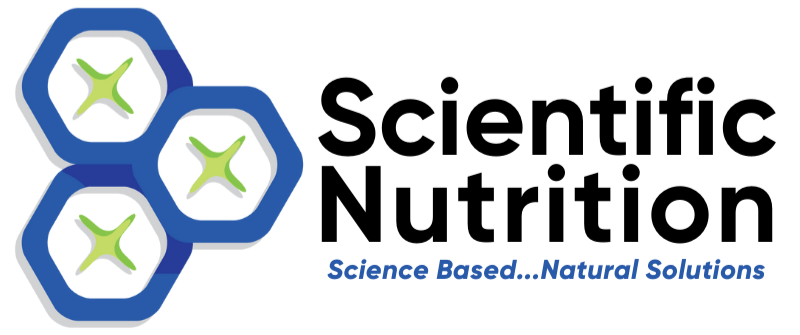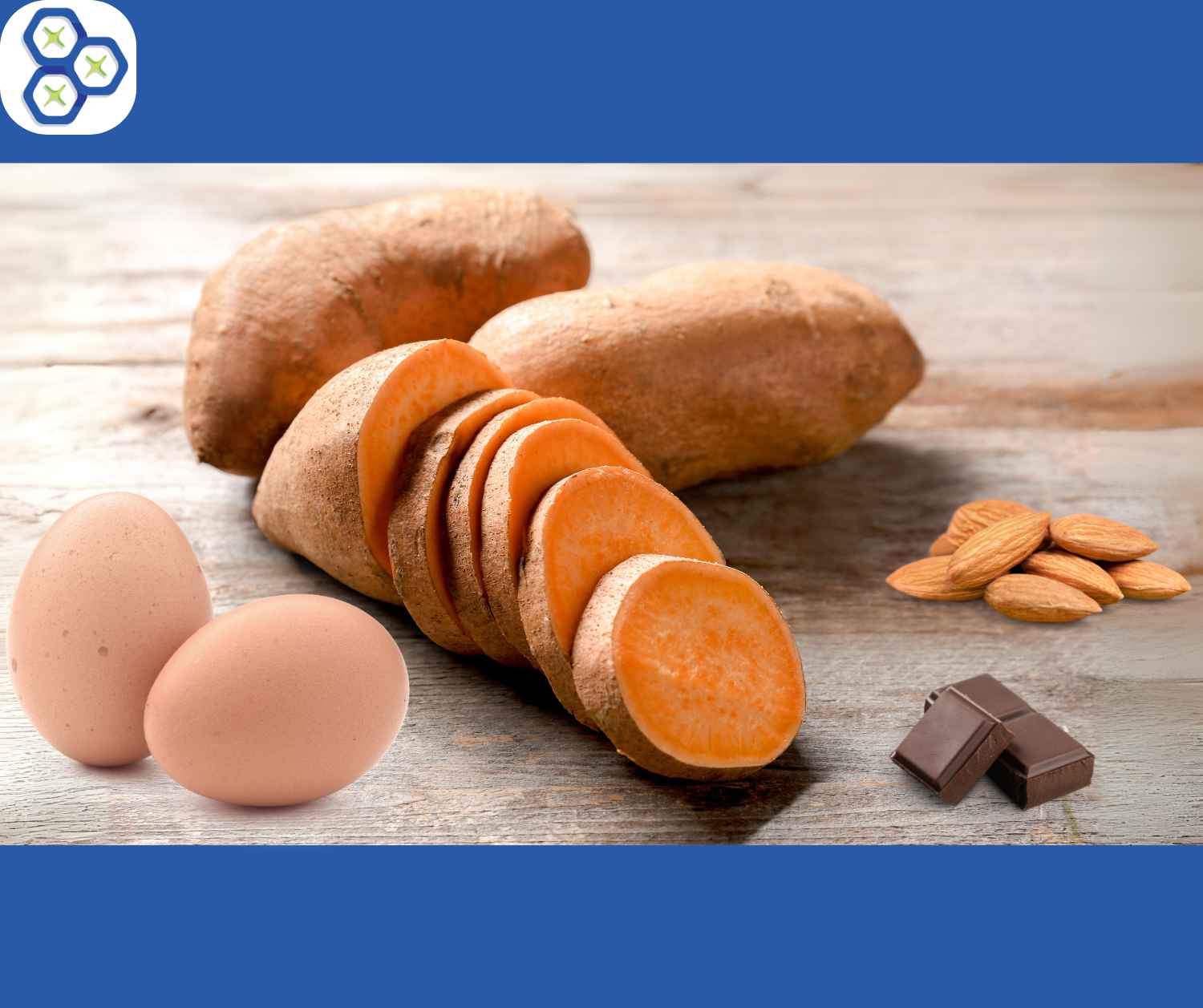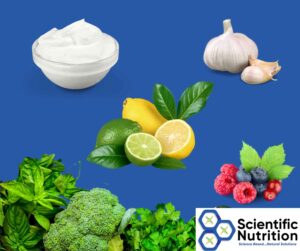Why do healthy low-calorie nutrient-dense foods matter?
Are you the kind of person who wants to eat smarter (& healthy) without sacrificing taste? Healthy low calorie food options can help you to improve your health in so many ways.
Like many people, you struggle with healthy food choices, especially when faced with countless temptations particularly around the holidays or during celebrations. No worries; I’ve got you! You can enjoy a satisfying, nutrient-rich diet without the excess calories. It’s all about knowing what to eat.
Understanding why low-calorie, nutrient-dense foods matter is key to a balanced diet. They provide essential nutrients without adding pounds.
What do I need to eat to lose weight and eat healthier?
We need our macronutrients carbohydrates, fats, and proteins but they can add up fast if you are watching your waistline or health.
The simple flour-based carbohydrates can spike your blood sugar and leave you feeling hungry soon after the crash is over. The unhealthy hydrogenized or hydrolyzed fats or seed oils can clog up your liver and arteries. Very few people today eat enough protein (I see it on a Hair Mineral Analysis) so let me help with that below.
Afraid of fats? Let’s get something straight. Healthy fats don’t make us fat, too many carbs and sugar do. Just look at how folks ate in the 50s and 60s in comparison to the late 70s and 80s. This is when the government food pyramid started recommending 6-11 servings of grains/carbs and very little fat. The obesity statistics went through the roof and continue to climb. We can not burn off that many carbohydrates in daily life.
Add into the mix the artificial flavorings, preservatives, chemicals, and sweeteners pushing addictions. When you taste the sweetness on your tongue (natural or not) your pancreas releases insulin to bring it down. Do this over and over all day and you create insulin resistance.
We need to go back to simple 1 ingredient foods with no toxic sprays on or in them. Society didn’t count calories in the past, they simply ate pure foods in moderation, and not super-sized portions.
In this blog post, you’ll discover the 11 best low-calorie healthy food options for a balanced diet. I have categorized those 11 low-calorie options into three categories so you can easily understand them.
Here’s why you should consider these foods:
- Calories directly impact your weight: Managing calorie intake helps control weight gain and promotes overall health.
- Nutrient-dense foods are your best friends: They offer vitamins, minerals, and other essential nutrients in every bite.
Let me share my favorite healthy food substitute suggestions for replacing unhealthy foods with macro-nutrients.
High-protein, healthy low-calorie food options
I do recommend eating 2 servings of animal protein daily as protein plays a role in every single cell function but occasionally beans and nuts can substitute. Choose dark meat poultry or marbled meat if you have a fast metabolism as found on a Hair Analysis and low-fat white meat or lean cuts for a slow metabolism. Here are some other suggestions to fulfill your protein needs:
1. Whole eggs
Whole eggs are full of nutrients that fit perfectly into a low-calorie diet. Despite their bad reputation in the past, eggs are an excellent source of high-quality protein and essential nutrients.
- Choline: Found in the yolk, choline is a nutrient that supports brain health and increases fat metabolism.
- Protein content: A single egg contains about 6 grams of protein, helping you feel full longer.
- Calorie-efficient: One large egg contains roughly 70-80 calories which makes it a satisfying, low-calorie option.
Including whole eggs in your diet can increase your protein intake while keeping your calorie count in check. Enjoy them scrambled, boiled, or as part of a nutritious breakfast bowl.
2. Roasted chickpeas (Garbanzo beans)
Roasted chickpeas a.k.a. garbanzo beans are in the legume family. They are not only crunchy and delicious but also packed with nutrients that make them an excellent high-protein, low-calorie food. Just limit beans and nuts to 3 times a week as they are a high copper food.
- Nutritional profile: Chickpeas are rich in fiber, protein, and essential vitamins like folate and iron.
- Low-calorie: A half-cup of roasted chickpeas contains around 120 calories…so that’s a guilt-free snack.
- Versatile: Roasted chickpeas add a crunchy texture to snacks, dips, salad toppings, and soups.
By including chickpeas in your diet, you can enjoy a plant-based protein source that’s both satisfying and low in calories. Swap your mayo for creamy organic chickpea hummus. With only 25 calories per tablespoon, 1.5 grams of fat, and over a gram of protein, you’ll enjoy more flavor with 70 fewer fat calories.
Try using hummus with Extra Virgin Olive Oil (EVOO) and garlic instead of the calorie-dense dairy-based dips. You’ll get the added benefit of this heart-healthy fat with garlic’s antimicrobial, antibacterial, anti-fungal, cognitive improving, immune boosting, cancer-fighting, cholesterol-lowering, cough suppressing, and reducing blood pressure properties.
Whew, what a phenomenal food garlic was right? Did I mention garlic is also anti-inflammatory and an antioxidant?
3. Sardines
Sardines are a nutritional gem. They offer an abundance of protein and omega-3 fatty acids while being low in calories. Switch to a sardine fish sandwich instead of tuna for a healthy food substitute. The larger the fish, the more heavy metal accumulation you will take on. The healthiest source of these tiny fish swim toward the top of the water in the Atlantic, skinless/boneless is best as they are very low in contamination.
- Omega-3s: Sardines are packed with omega-3 fatty acids and vitamin D which we need more than ever. Omega-3s support heart health and reduce inflammation.
- Protein content: A serving of sardines provides about 23 grams of protein, which aids in muscle repair and building.
- Low-calorie: Sardines are a low-calorie protein source, with around 200 calories per can, making them ideal for weight management.
Compared to larger fish like tuna, sardines have lower mercury levels which makes them a safer and healthier option. Whether you eat them on whole-grain crackers, in salads, or as part of a main dish, sardines are an excellent choice for a nutrient-dense, low-calorie meal.
4. Protein shakes
Plant and whey-based protein shakes can be excellent healthy low-calorie options for maintaining a healthy diet.
Organic non-GMO pea protein plant-based protein shakes:
- High-quality protein: Source without the additives and contaminants sometimes found in other protein products.
- Convenient: They are easy to carry in a baggie for on-the-go nutrition.
- Low-calorie: This choice is ideal for those avoiding dairy or looking for a sustainable plant-based protein source.
Whey dairy-based protein shakes:
- High in amino acids: Known for their complete amino acid profile, they support muscle recovery and overall health.
- Reduced carbohydrates: When cutting the number of grams of carbohydrates you will cut calories. When choosing whey, it’s important to consider the source/manufacturer, as some flavored varieties, like chocolate, can be contaminated during cocoa processing with heavy metals.
Both options are versatile and can be used as meal replacements or post-workout fuel, helping you stay on track with your nutritional goals while keeping calories in check.
Healthy low-calorie fats in food
5. Unsweetened Greek Yogurt
Unsweetened Greek yogurt is a great low-calorie substitute for sour cream that adds richness and creaminess to your meals without the extra calories. You can add cilantro (detoxifying) and taco seasoning to top your tacos.
- Substitution: In dips, sauces, and toppings, swap sour cream for unsweetened Greek yogurt. It offers a similar texture but fewer calories and more nutrients.
- Nutritional benefits: Greek yogurt is packed with protein, calcium, and probiotics, which support gut health and enhance digestion.
- Balanced diet: Incorporating Greek yogurt into your meals can help you maintain a balanced diet by providing healthy fats and protein, keeping you full and satisfied.
Greek yogurt cuts calories and boosts the nutritional value of your dishes. It is definitely an excellent choice for those seeking healthier options. Organic raw dairy (milk or cheese) is much more digestible as the enzymes that break down lactose remain intact. Low-fat cottage cheese and reduced-fat Swiss or cheddar are good choices to boost protein intake as well.
Use organic whole milk or real cream to cut out high fructose corn syrups (and aborted fetal kidney cell flavor receptors used by biotech company Synomyx). The processed creamers also contain traces of glyphosate found in Roundup and carrageenan which has links to cancer as well as inflammatory responses. As a result of using the healthy full-fat dairy version, you will gain vitamins D, A, and B12 while replacing calcium loss that caffeine can rob from your bones. Try adding organic Watkins vanilla extract for flavor with your real cream for a treat.
6. Almonds
Almonds are a nutrient-dense snack that offers a healthier alternative to peanuts.
- Nutrient profile: Almonds are rich in healthy fats, fiber, protein, vitamin E, and magnesium, making them a powerhouse of essential nutrients.
- Low-calorie choice: A 1-ounce serving of almonds contains around 160 calories, making them a satisfying and energy-boosting snack.
- Healthy swap: Replacing peanuts with almonds significantly reduces your exposure to mycotoxins and molds, which are more common in peanuts. They while deliver 6 grams of protein, 16 grams of healthy fat, and only 2 grams of net carbs. Almonds also have a better fat profile, contributing to heart health.
Incorporating almonds into your diet as a snack or topping for salads and yogurt helps you enjoy healthy fats without overloading with calories. Switch to almonds instead of peanuts. Spread some almond butter onto sticks of celery to kill the crunchy craving and pack in some fiber to feed your gut probiotic with the nut protein.
7. Extra Virgin Olive Oil (EVOO)
Extra Virgin Olive Oil (EVOO) is a heart-healthy fat that adds flavor to your meals while being lower in calories than many other fats.
- Heart health: EVOO is rich in monounsaturated fats, which can help reduce bad cholesterol levels and support heart health.
- Antioxidants: Packed with antioxidants, EVOO fights inflammation and protects your cells from damage.
- Versatile use: EVOO can substitute for calorie-dense dips and spreads or be drizzled over salads, vegetables, and whole grains for added flavor and nutrition.
Healthy low-calorie carbohydrate options
8. Riced cauliflower
Riced cauliflower is a low-calorie alternative to white rice. It helps you cut carbs while still enjoying your favorite dishes. It can also help you to cut out incoming arsenic with ALL rice consumption. Use riced cauliflower instead of white rice as it is devoid of nutrients. You will also save 175 calories per cup! This low carbohydrate cruciferous veggie will help your waistline and fight cancer cells.
- Substitute for white rice: Swap white rice with riced cauliflower in stir-fries, burrito bowls, and side dishes to slash calories without sacrificing texture or flavor.
- Nutritional advantages: Riced cauliflower is packed with fiber, vitamins C and K, and antioxidants, offering a nutrient boost with fewer calories.
- Calorie savings: A cup of riced cauliflower contains only about 25 calories, compared to over 200 calories in the same amount of cooked white rice, making it a smart choice for weight management.
Riced cauliflower into your meals helps you enjoy the comfort of rice dishes while keeping your carb intake in check.
9. Sweet potatoes
Sweet potatoes offer a nutritious and lower-calorie alternative to white potatoes. The creamy texture along with a pat of real butter will satiate your craving for comfort food. The added fiber will feed your gut microbiome too. Try a sprinkle of cinnamon for a twist as it tastes great and helps to regulate blood sugar levels.
- Comparison to white potatoes: Sweet potatoes have a lower glycemic index, which means they cause a slower rise in blood sugar levels compared to white potatoes.
- Balanced diet: Rich in fiber, significant amounts of vitamins A, B, and C, iron, calcium, selenium, and potassium, sweet potatoes support digestive health, immune function, and heart health, all while being lower in calories than traditional white potatoes.
- Versatile preparation: Sweet potatoes, whether baked, mashed, or roasted, are a satisfying, nutrient-rich addition to any meal.
Adding sweet potatoes to your diet allows you to enjoy a filling, flavorful, and nutritious carbohydrate that aligns with your health goals.
10. Quinoa
One of my favorite complex carbs is quinoa (keen-wha). Quinoa is a complex carbohydrate that provides a satisfying, low-calorie option for those looking to maintain a balanced diet. If you saute a few celery ribs with one onion in butter and then mix it with the quinoa and poultry seasoning it is divine! In fact, it tastes like stuffing but it is packed with protein and two root veggies.
- Complex carbohydrate: Quinoa is rich in protein, fiber, and essential amino acids, making it a complete and nutrient-dense carbohydrate choice.
- Low-calorie meal: A cup of cooked quinoa contains around 220 calories, but its high protein and fiber content helps you stay full longer.
- Easy preparation: Cook quinoa in water or broth and pair it with vegetables, lean proteins, or legumes for a hearty, nutritious dish.
Quinoa helps you stay satisfied and nourished without overloading with calories or a carbohydrate crash.
11. Sprouted bread
Top it with organic non-GMO grass-fed butter that is easily digestible and a healthy fat. It is a healthy food substitute with a fraction of a bagel which is full of empty calories and pesticides!
Practical tips for maintaining a healthy low-calorie, nutrient-dense diet
Here are 5 practical tips that you can implement today;
- Practice portion control: Use smaller plates and bowls to manage portions. Measure out servings to avoid overeating, even with healthy foods.
- Watch out for hidden sugars: Read labels carefully. Avoid processed foods containing added sugars with hidden names for sugars, even if labeled “healthy.”
- Replace empty calories: Swap sugary drinks with water or herbal tea. Choose whole foods over processed snacks to keep your meals nutrient-dense.
- Choose healthy swaps recap: Substitute white rice with riced cauliflower, or use Greek yogurt instead of sour cream to reduce calories while maintaining flavor. Be creative to eat a healthier version of the things you love and use regularly.
- Plan your meals: Create a weekly meal plan that focuses on low-calorie, nutrient-rich foods. This will help you avoid last-minute unhealthy choices.
Healthy low-calorie low-carbohydrate treats!
We all need a snack or treat sometimes so plan to make it a healthy low-calorie one.
- Apples are a great sub for applesauce as it is typically loaded with sugar. If you do want to eat applesauce choose the non-sweetened and add a dash of cinnamon. If you need a smidge of sweetness use a pinch of monk fruit.
. - Ice cream can be a slippery slope as it’s easy to eat a large portion of this creamy fattening treat. As an alternative, blend a banana, throw in some almond butter or whole almonds with cacao bits, and freeze.
. - You can also use Greek Yogurt with cacao powder, monk fruit (which won’t raise your blood sugar), and vanilla for a frozen yogurt “cheat”. As it is protein-rich, which takes longer to digest, it will leave you feeling fuller longer. It’s full of probiotics, calcium, and antioxidants.
. - Commercial strawberries are at the top of the “dirty dozen” of contaminated foods dowsed with pesticides. They are also the highest on the acidic fruit scale, even more so than a lemon! Instead, reach for organic red/black raspberries or blueberries as they are lower in sugar calories, plus they are packed with antioxidants.
. - If you must have something chocolate, opt for 70% or more dark chocolate. Not only will a 100-gram bar give you 11 grams of fiber, but it also supplies antioxidants, magnesium, manganese, iron, and copper. Eating a small square of this rich form can squash the craving. All while improving your blood flow, and cholesterol, improving cognitive brain function, and raising estrogen levels during PMS (hear me, ladies?). SCORE! Do some research on the
Hair Analysis and starting to take control of your healthy low-calorie food
You can feel like yourself again with energy, vitality, and mental clarity. We just need to see exactly which food shifts you need to make.
With nutritional deficiency comes “dis”ease, inflammation, and exhaustion. You don’t have to struggle through the day feeling constant exhaustion and discomfort, defeated, and sick. With the right tools, your body can heal itself in amazing ways. With the right adjustments, your body has the power to heal itself.
Choose to change it today!
Imagine waking up with more energy, mental clarity, and vitality every day. Achieving this starts with understanding the right food substitutions your body needs.
You have total control and power over your diet and health.
A Hair Analysis Test can reveal the dietary changes and supplements your body requires to restore your health. Once your mineral balances are optimized through a Hair Test, your body will regain its natural ability to detoxify and regulate hormones. Don’t wait—take action now for a healthier, more vibrant you. You can start today by substituting healthy low-calorie food choices then –
LET’S CHAT about your health goals!
Learn more about inflammatory foods below.
Copyright Scientific Nutrition, LLC 2022




